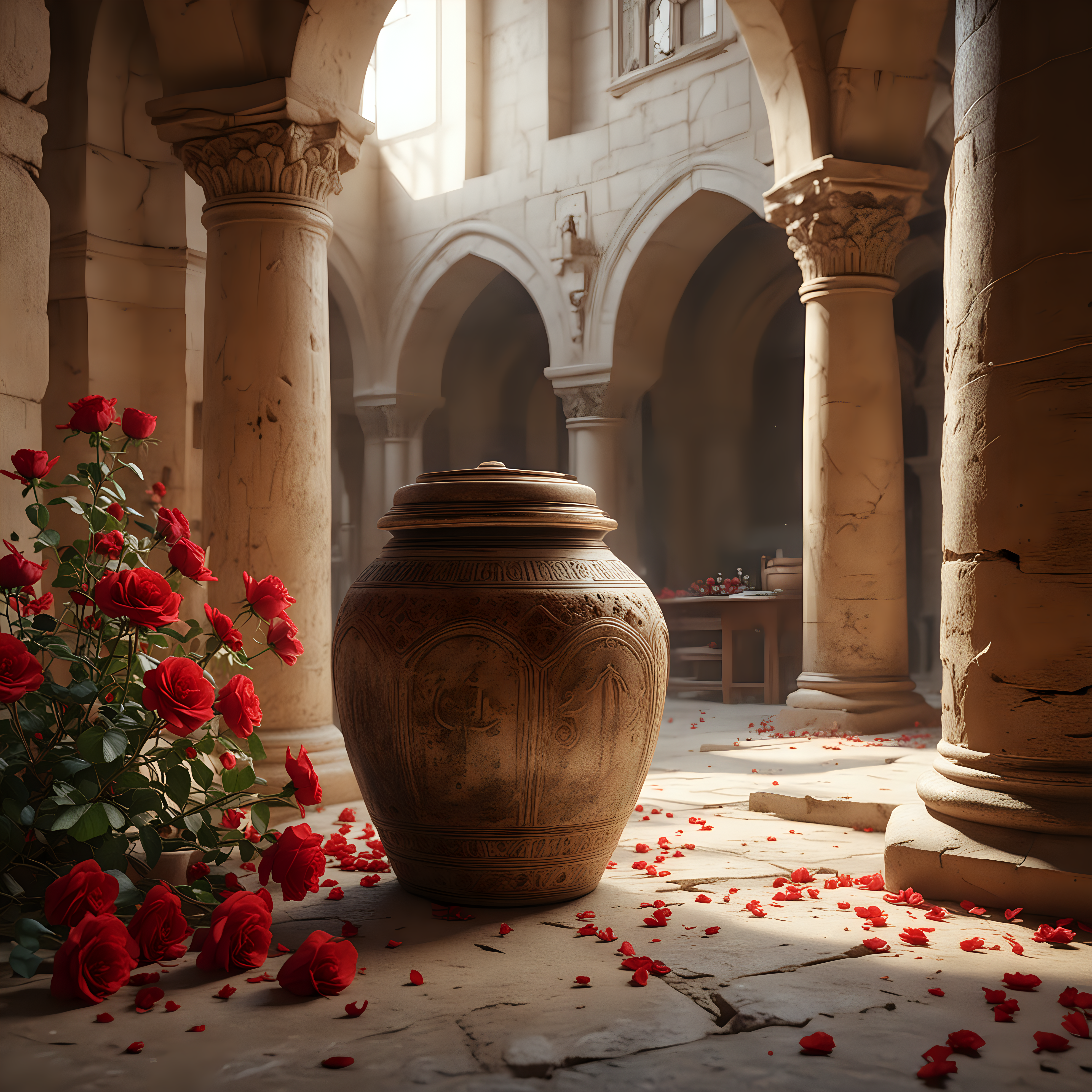Our series on The Beatitudes as 8 keys to happiness kicks off with the first Beatitude:
“Blessed are the poor in spirit, for theirs is the kingdom of heaven.”
Matthew 5:3
If you’re thinking, “What the heck is a Beatitude?” or you simply need a refresher, no problem! We have a whole other article that will give you some background on the Beatitudes. But if you want the TLDR version, the Beatitudes are a series of 8 statements made by Jesus as part of his Sermon on the Mount in the Gospel of Matthew. For our purposes of spiritual healing, the Beatitudes are mystical laws that speak to our souls when we’re at the bottom of life. They remind us that our lowest points in life present us with the greatest opportunities for spiritual growth.
This article will help prepare you to not only accept future challenges in your life with grace but also to emerge from them with a renewed and expanded spirit.
What is the First Beatitude’s meaning?
Like most of the Beatitudes, the first Beatitude’s meaning is not intuitive.
“Blessed are the poor in spirit, for theirs is the kingdom of heaven.” So, the first Beatitude is saying that those who are most lacking in spirit are worthy of the ultimate spiritual goal? Huh?
This doesn’t make much sense, right? Well, not at first. The whole point of paradoxical statements is to stop you in your tracks. It’s as if the words are jumping off the page and crying out to you: “Pay attention to me! I’m really important!” So, how do we reconcile the contradiction? Well, the beauty of mystical theology is that there are always greater depths of meaning than what first meets the eye.
The literal “kingdom of heaven” is the heavenly afterlife, where we will have a blissful eternal life marked by a union with God. For the mystic, however, this union can be attained here and now. But it’s not so simple. It’s not something we can attain by begging and pleading. We can’t attain it just by trying really hard to do all the right things. In fact, in a sense, it is the opposite that is true.
How can the poor in spirit be blessed?
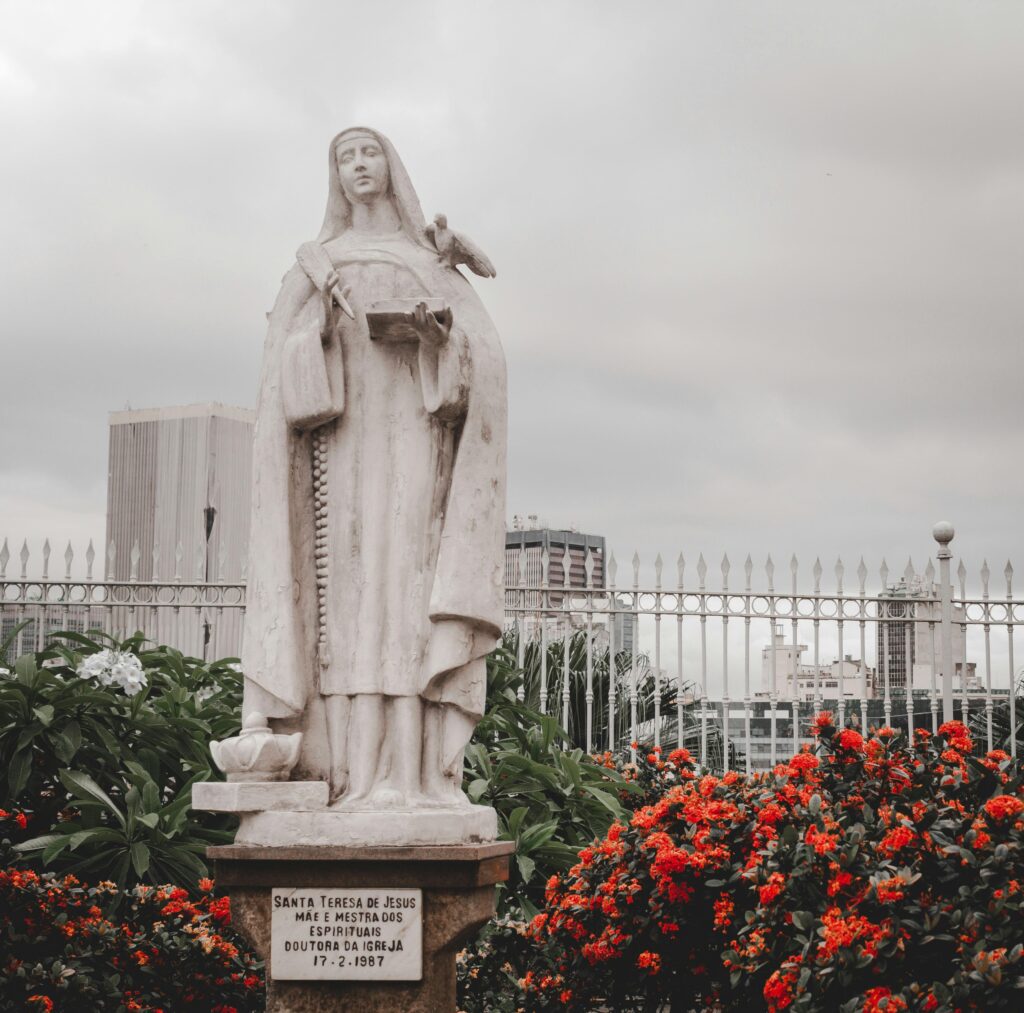
The 16th-century Spanish mystic Teresa of Ávila tells us that, when it comes to the kingdom of heaven, “However great the effort we make to do so, we cannot enter. His Majesty must place us there and enter Himself into the center of our soul.” This is what Christians refer to as grace. It’s the Divine energy that seeps into us when we empty ourselves to make room for it. It’s almost like osmosis. Just as water will flow from a space with lots of water to a space devoid of water, the Divine spirit—which is constantly overflowing—seeks out empty spaces. Once it fills us up, our own will becomes aligned with that of God.
The thing is, most of us have strong wills of our own—wills that do not always seek out the things that are spiritually beneficial. I mean, it’s only a matter of practical fact that we have to take care of our bodies by pursuing earthly material goods like money, food, shelter, and clothing. However, if you’re overly rich, well-fed, and receive an abundance of praise from others, you might have closed yourself off from grace. The 4th-century mystic St. Augustine puts it this way:
“God is always trying to give good things to us, but our hands are too full to receive them.”
St. Augustine of Hippo
It’s not like we should starve ourselves—of course not! But we can eat without feasting, shelter ourselves without clawing our way up the ladder to get that multimillion-dollar mansion, and clothe ourselves in something other than fancy designer shoes and handbags.
Beginner’s mind
This is a principle of spiritual wisdom that is not confined to Christianity. The Daoist sage Lao Tzu points out something very similar with a paradoxical statement of his own: “Pots are fashioned from clay / but it’s the hollow / that makes a pot work / […] existence makes a thing useful / but nonexistence makes it work.” We need our physical bodies—they’re like the clay. But the clay is there to house the hollow—the space in our souls that is like God’s multimillion-dollar mansion.
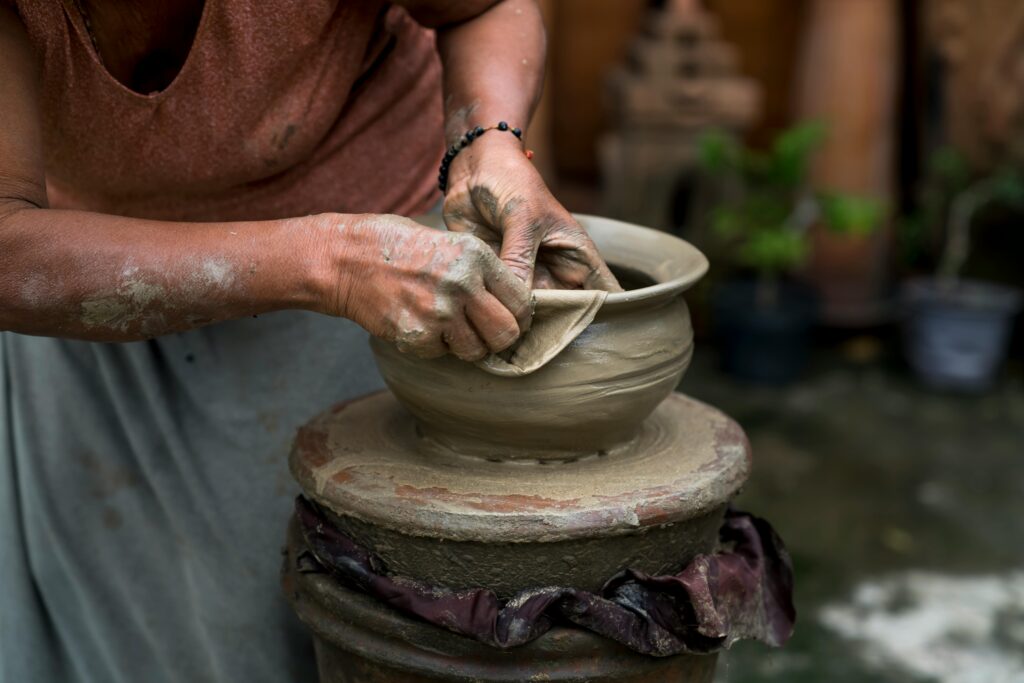
Okay, so we get how poorness, or emptiness, can be spiritually beneficial. But how can spiritual poorness in particular be beneficial? In Zen Buddhism—which was heavily influenced by Daoist teachings—there is a concept known as “beginner’s mind.” The Zen teacher Shunryu Suzuki explains it like this: “Suppose you recite the Prajna Paramita Sutra only once. It might be a very good recitation. But what would happen to you if you recited it twice, three times, four times, or more? You might easily lose your original attitude towards it […] Although you may improve some, you are liable to lose the limitless meaning of original mind.”
You need not know what the Prajna Paramita Sutra is to grasp the meaning of the “beginner’s mind.” Think of something more familiar, like the principle of loving one’s neighbor. Whether you’re Christian or not, you’ve likely heard this phrase so many times that it’s lost a little of its original power. It’s easy to think, “Alright, alright, I got the message, okay?” We cease to reflect on old, familiar teachings and may even close ourselves off from newer, less familiar ones. But blessed are the poor in spirit because they are hearing everything for the first time.
How to become poor in spirit so that we may enrich our spirits
Imagine you have a houseplant that’s become infested with pests or infected with some kind of blight. It may be a plant you’ve had for a while that’s grown big and tall. It might even continue to grow for a bit. But the odds are against you. Your effort to revive it will be an uphill battle, and you might not succeed. The alternative is for you to accept the loss, take what you learned from this plant’s demise, and start over with a new plant.
But first, you have to clean out the plant’s pot. At the very least, you have to pull out the plant—roots and all—and you may even have to completely replace the soil. It may look sad and empty at that point, but the emptiness is going to make for a much happier home for your new plant.
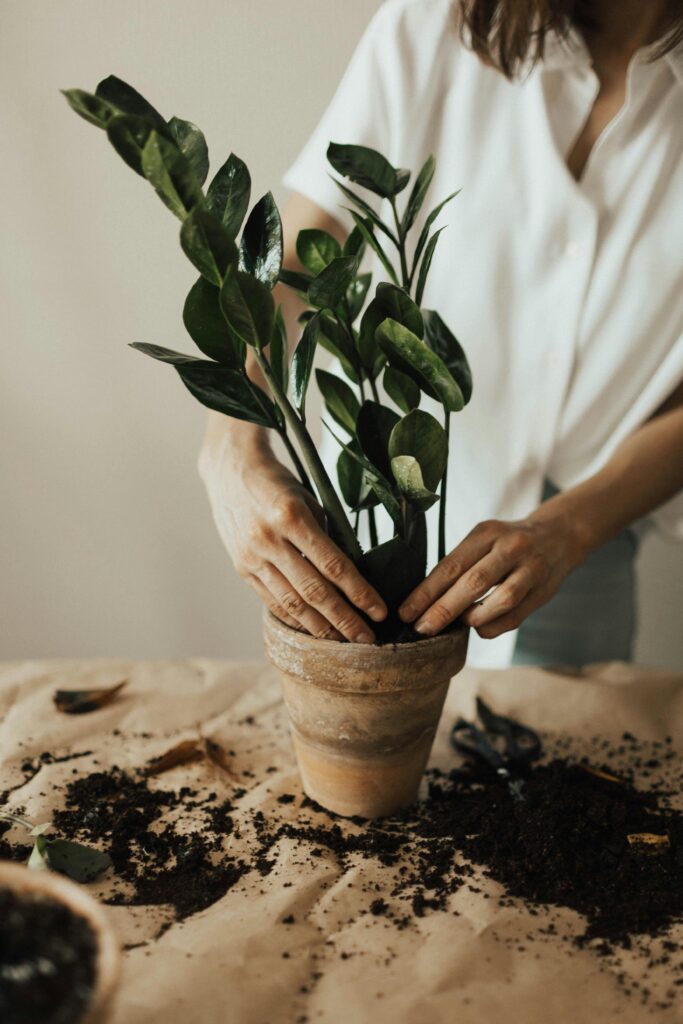
So, what’s the spiritual equivalent? If the poor in spirit are blessed, how do we become poor in spirit? How do we empty ourselves out so that we can start fresh with more of a beginner’s mind and restart our spiritual growth?
Catastrophe
I am NOT advocating for anyone to bring upon their own catastrophes. Do not set your house on fire! Do not go out into an empty field in the middle of a thunderstorm holding a long metal pole up toward the sky!
The fact is, life throws enough catastrophic events our way, whether we like it or not. The question is not, “How do you manufacture a catastrophic event for yourself?” Rather, the question is, when catastrophe strikes—the end of a relationship, miscarriage, job loss, death, diagnosis, or any unexpected blow —what do you do? How do you pick up the pieces? How do you face the debilitating grief, move through overwhelming anger, and rediscover your hope in life again?
This is your invitation to let go of the illusion of self-sufficiency and control. What would happen if, in your poverty, you could open yourself up to grace, to help from the universe? Your spiritual plant’s roots are infected. Will you clear out the pot to make room for something new to grow?
Pride vs. Humility
The good news is, there is another way. We don’t have to wait for (or bring about) a catastrophic event.
Have you asked yourself yet, why does THIS Beatitude come first?
“Blessed are the poor in spirit, for theirs is the kingdom of heaven.”
The sequence of these keys to happiness is not random! There’s a reason spiritual poverty is the first key. Can you guess why? What is the greatest danger on the spiritual journey?
It’s Pride.
Pride is the fundamental source of separation from the Divine. It leads to a sense of self-absorption, arrogance, and a belief in one’s own superiority. Pride leads us away from a deeper connection with others and the universe. It can lead to a sense of self-centeredness, where we prioritize our own desires and needs above everything else. It’s like pumping our souls full of sewage water, preventing the clean water of the Divine from osmosing its way in.
The first Beatitude says: empty yourself and let go of who you think you are so you can be shown how much more you are than you think. Practice humility. Humility doesn’t mean we shouldn’t strive for growth, but it does mean realizing that your efforts alone aren’t enough. When you embrace this truth, you find a richness of spirit that surpasses any worldly treasure.

Poorness might be the starting point, but the goal is actually a kind of richness. We are emptying ourselves out so that we can see everything with fresh eyes and be grateful for everything we might have taken for granted in life: all the little blessings of everyday existence that represent the true kingdom of heaven.
The kingdom of heaven on Earth
“Blessed are the poor in spirit, for theirs is the kingdom of heaven” is an invitation to trust. To trust in the Divine. To trust in the wisdom woven into the fabric of creation. The kingdom of heaven is here on Earth. You just have to surrender to it. Or, as philosopher Jiddu Krishnamurti puts it,
“Only when you discard completely, through understanding, the whole structure of the self, can that which is eternal, timeless, immeasurable, come into being. You cannot go to it; it comes to you.”
Jiddu Krishnamurti, The First and Last Freedom
The key to the kingdom of heaven is surrender. When your heart is surrendered, you are open to the Divine and receptive to grace. That is where true happiness is found.
Ultimate surrender
I’ll always remember that day when I left the hospital after a grueling surgery to remove the cancer from my body. I had no choice but to surrender to whatever my fate might be. And I was cracked open: physically, emotionally, and spiritually.
My body was sore and weak, but surprisingly, I felt well in my heart. When I stepped out into the open air of the hospital garden, I got a taste of the kingdom of heaven.
The hospital’s sterility had left me with a beginner’s mind. Poor in spirit, I was rich in openness. My senses were heightened and I found myself drinking in the smells and sounds like a thirsty wanderer finding an oasis. The outdoors welcomed me like a long-lost friend—the gentle rustle of trees, the lively chorus of birds, and the soft whispers of the wind filled my soul with gratitude and joy.
I arrived at the hospital as a patient, burdened with fear. But I left a poor pilgrim, and I stepped into a world that seemed brighter, more vibrant, and more alive. It was the lowest, most helpless, out of control I’d ever been. But I received the greatest gifts because my heart was open to them. I had a sense of being an integral part of the whole, not just a visitor in the kingdom of heaven, but a true resident returning home to the mystical Oneness.
Blessed are the poor in spirit who live in the moment
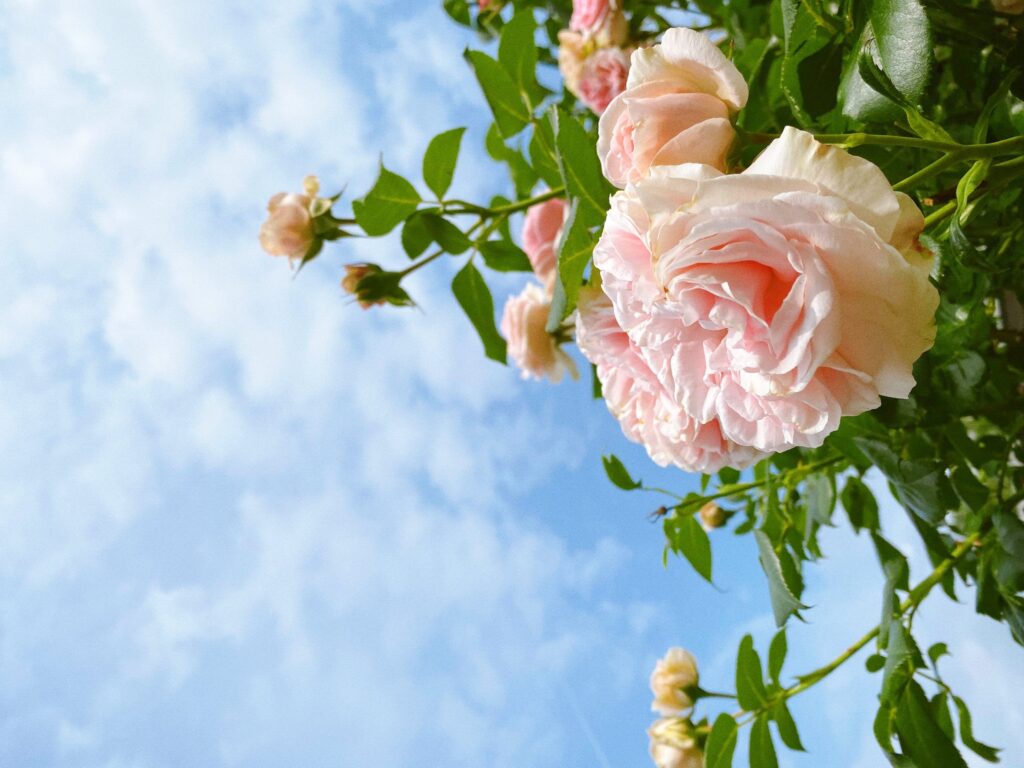
In my moment of ultimate surrender and vulnerability, I remembered the saying, “Take time to smell the roses,” and I just burst into laughter and tears because it suddenly held a profound meaning for me.
When we are constantly chasing after something—even if the thing we are chasing is a more spiritual, blessed life—we run the risk of missing the blessing that is being offered right now: intimacy with the consciousness that is creating us into the moment we’re living right now.
Blessed are the poor in spirit who live in the present moment that is the kingdom of heaven.
Frequently Asked Questions
The first Beatitude means that the poor in spirit are those who are best positioned to embark on a journey of spiritual growth and development which culminates in “the kingdom of heaven,” a state of deep connectedness with the divine, inner peace, and true happiness.
The first Beatitude states that, “Blessed are the poor in spirit, for theirs is the kingdom of heaven.”
Poor in spirit means being in a state of complete openness, with almost a childlike sense of innocence. The poor in spirit are starting from scratch, from the ground up, when it comes to spiritual development. It sounds like a bad thing, but it’s not! Sometimes we have to empty ourselves out, ridding ourselves of the misconceptions and assumptions we’ve been taught about ourselves, the world around us, and the nature of the divine so that we can start off from the beginning and go down the right path.
You know you’ve surrender to God because you feel it in your bones. You feel as though you’ve left behind some of your self-centered pride and learned to trust in a higher source of wisdom, understanding our place in a much grander web of existence.
Paragraph
Paragraph


